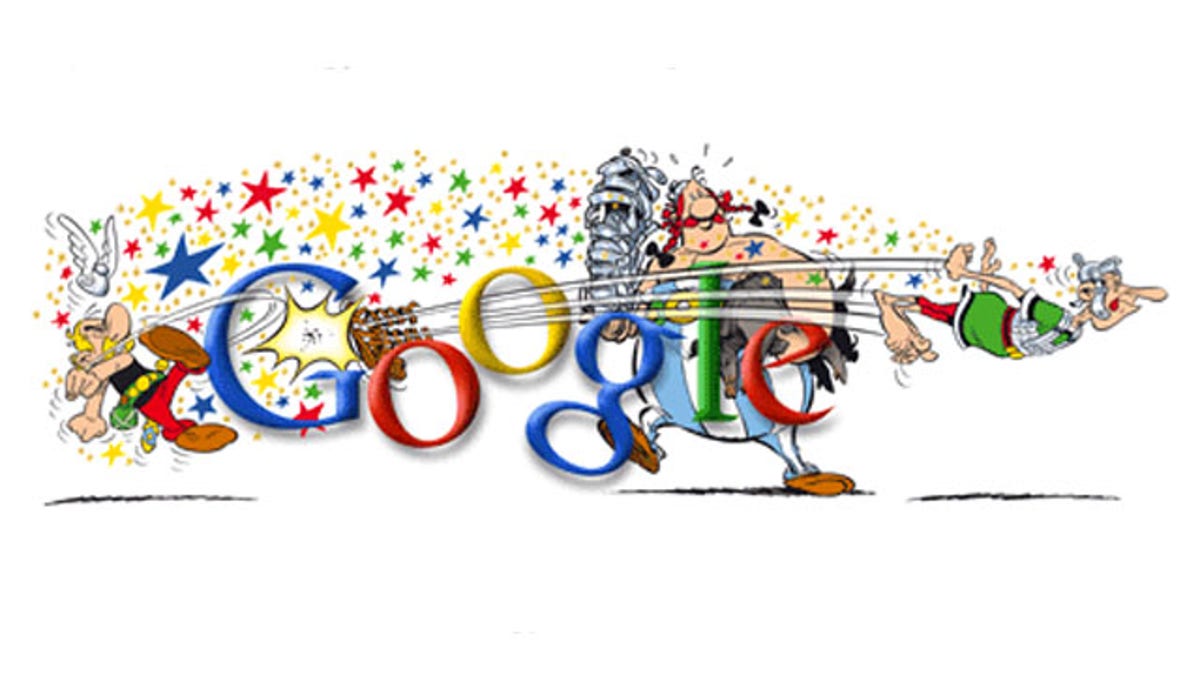
(Google)
PARIS -- France's culture minister on Tuesday unveiled a plan for adapting the country's literary patrimony to the digital age by developing what he hopes will prove a uniquely Gallic competitor to Google Books.
Frederic Mitterrand didn't rule out cooperating with the ubiquitous, U.S.-based search engine and said France was prepared to share files with Google under certain conditions. But he made clear that the company would have to play by France's rules. Billed as a public-private partnership, the impetus and funding for the French initiative comes from the state.
The Google Books project already has scanned and catalogued more that 10 million books as part of its project to create an online library accessible to anyone with an Internet connection.
"I didn't want this debate to become the latest in the long series of ... Franco-American disputes, even if they are sometimes quaintly charming," Mitterrand said at a news conference in a gilded hall of the Culture Ministry.
Mitterrand said an existing French database of scanned documents, called Gallica, would serve as the foundation for a vast, new Internet portal for French letters. Run by France's national library, Gallica has fewer than a million items -- including books and other documents -- in its database and is mainly accessed by professionals -- not the public.
France aims to build up Gallica's collection by cooperating with publishers here and private companies -- including, perhaps, Google -- on the onerous task of scanning and cataloging books, said Marc Tessier, who authored the report presented Tuesday.
Copyright issues have proved a thorn in Google Books' side, with many authors and publishers worldwide contending its digital library violates copyrights. On the French site, publishers would be able to decide how much of books under copyright would be accessible online and links would send users to online retailers, Tessier said. The site would generate revenue through small advertisements that would be placed alongside the content, he said.
Deals could eventually be struck to swap books in French that have already been scanned by Google Books -- mostly holdings of university libraries in the U.S. -- for books scanned in France, Tessier said.
President Nicolas Sarkozy's announcement last month that nearly euro750 million had been earmarked for digitizing France's libraries puts the country in a uniquely strong position to negotiate with Google, said Mitterrand, who added he plans to visit the company's California headquarters in March.
"Google came to Europe with the attitude of a conqueror, and many opened the door to it by signing deals which I find unacceptable (that) are based on excessive confidentiality, impossible exclusivity, and a casual, even one-sided approach to copyright," Mitterrand is quoted as saying in an interview in Tuesday's Le Monde daily. "We will propose to them ... to exchange files without confidentiality or exclusivity, in total transparency and with total respect for copyright."
Google France reacted positively to the report.
In a statement, it called the proposal a "partnership with Google, which fits into the scheme of cooperation that we have always promoted."
"This collaboration will enrich Google Book's catalog and will improve service for Internet users who will be able to access millions of works in French," the statement quoted Philippe Colombet, who heads the books program at Google France, as saying.
Mitterrand commissioned Tessier's study after news reports that France's national library was considering allowing Google to scan and catalog its collection sparked heated outrage here. One French library, in the central city of Lyon, has already struck a deal with Google Books.








































